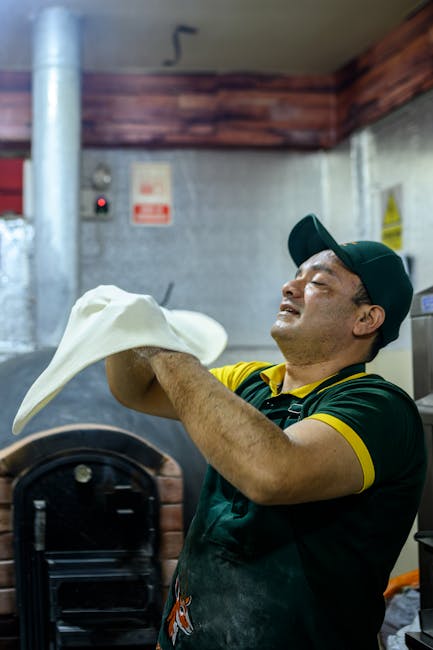Introduction: The Culinary Backbone of GCC Tourism
Have you ever wondered who creates the authentic flavors driving GCC’s booming hospitality sector? The Gulf Cooperation Council’s tourism industry is experiencing unprecedented growth, with Dubai alone welcoming over 16 million international visitors annually. Consequently, this expansion creates massive demand for skilled culinary professionals who can deliver exceptional dining experiences. Specifically, skilled Nepali specialty chefs are playing an increasingly vital role in supporting GCC hospitality growth through their unique culinary traditions and professional expertise. Furthermore, this article explores how these culinary artists contribute to restaurant excellence, menu diversity, and cultural fusion across the region’s luxury hotels and fine dining establishments. Additionally, we will examine recruitment pathways, economic impacts, and future trends shaping this dynamic workforce migration.
The Rising Demand for Specialty Chefs in GCC Countries
GCC nations are investing heavily in tourism infrastructure and luxury hospitality projects. For example, Saudi Arabia’s Vision 2030 aims to increase tourism’s GDP contribution to 10% alongside massive developments like NEOM and the Red Sea Project. Similarly, Qatar’s post-World Cup strategy continues to focus on premium culinary experiences as key differentiators. This creates enormous opportunities for skilled Nepali chefs specializing in various cuisines and culinary techniques.
Moreover, the UAE’s culinary scene has evolved beyond traditional Arabic fare to embrace global gastronomy. According to the Dubai Department of Tourism, the city now boasts over 11,000 restaurants and cafes representing virtually every world cuisine. This diversity drives demand for chefs with authentic regional cooking skills particularly from culinary-rich cultures like Nepal.
Why Nepali Chefs Excel in GCC Hospitality Environments
Nepali culinary professionals bring distinct advantages to GCC’s competitive hospitality sector. Their training often combines formal culinary education with deep cultural knowledge of Himalayan and South Asian flavors. Additionally, many receive training in international kitchens before transitioning to GCC positions.
Cultural Adaptability and Professional Flexibility
Nepali chefs demonstrate remarkable adaptability to different kitchen environments and management styles. They typically possess strong English language skills alongside technical culinary vocabulary. This communication ability ensures smooth kitchen operations and precise execution of complex recipes.
Technical Skills and Culinary Diversity
These professionals master diverse cooking techniques from traditional clay oven baking to modern molecular gastronomy. Many specialize in multiple cuisines including:
- Authentic Nepalese Himalayan cuisine
- Regional Indian specialties (North and South)
- Pan-Asian fusion cooking
- International buffet and banquet operations
Key Contributions to GCC Culinary Excellence
Skilled Nepali specialty chefs elevate dining experiences across GCC establishments through several measurable contributions. Firstly, they introduce authentic flavors and techniques rarely found in Western-trained chefs. Secondly, their cost-effectiveness allows restaurants to maintain high quality while managing operational budgets.
Menu Innovation and Authenticity
These chefs create dishes with genuine flavors that appeal to both regional patrons and international visitors. Their understanding of spice blending, marination techniques, and traditional cooking methods adds credibility to ethnic cuisine offerings. Furthermore, they often develop signature dishes that become restaurant highlights.
Operational Efficiency and Team Leadership
Many Nepali chefs advance to supervisory roles within GCC kitchen brigades. The World Bank notes that Nepal’s workforce demonstrates strong technical training and work ethic. Consequently, these professionals often manage multicultural kitchen teams effectively while maintaining quality standards.
Economic Impact and Workforce Development
The migration of skilled Nepali chefs to GCC countries creates significant economic benefits for both regions. Remittances from GCC-based Nepali workers constitute approximately 25% of Nepal’s GDP according to Nepal Rastra Bank data. Simultaneously, GCC hospitality businesses gain access to talented professionals at competitive compensation levels.
Salary Structures and Career Advancement
Specialty chefs from Nepal typically earn between $2,000-$4,500 monthly in GCC positions depending on experience and establishment caliber. Executive chef roles in luxury hotels can command higher packages including accommodation, transportation, and benefits. This represents substantial income growth compared to domestic opportunities.
Training and Skill Transfer
Many chefs return to Nepal after GCC contracts, bringing advanced culinary skills and management experience. This knowledge transfer strengthens Nepal’s domestic hospitality industry while creating a cycle of professional development. Additionally, culinary schools in Nepal increasingly tailor programs to GCC market requirements.
Recruitment Pathways and Visa Regulations
The process for bringing skilled Nepali specialty chefs to GCC countries involves specific channels and compliance requirements. Recruitment typically occurs through specialized agencies that handle documentation, medical checks, and employment contracts. Understanding these pathways is essential for hospitality businesses seeking these professionals.
Government Regulations and Work Permits
GCC countries have established specific visa categories for skilled hospitality professionals. Countries like the UAE offer long-term residency visas for specialists including executive chefs and culinary directors. These policies recognize the value of retaining top culinary talent for sector development.
Quality Assurance and Verification Processes
Reputable recruitment partners verify credentials through Nepal’s Ministry of Labour and Employment alongside culinary associations. The Nepal Ministry of Labour maintains records of trained culinary professionals eligible for overseas employment. This ensures that only qualified chefs receive GCC employment opportunities.
Cultural Integration and Community Support
Successful integration of Nepali chefs into GCC hospitality environments requires thoughtful cultural transition support. Many GCC employers provide accommodation in staff compounds with culinary teams from multiple nationalities. This creates multicultural kitchen environments that foster innovation and cross-cultural learning.
Professional Networks and Associations
Nepali chef associations in GCC countries provide community support and professional development. These organizations host culinary events, training workshops, and networking opportunities. Additionally, they assist new arrivals with settlement processes and cultural adaptation.
Culinary Diplomacy and Cross-Cultural Exchange
Through food, these chefs act as cultural ambassadors introducing GCC diners to Nepali traditions and ingredients. The British Council recognizes culinary diplomacy as soft power tool. Consequently, this exchange benefits both Nepali culture and GCC culinary diversity.
Future Trends and Opportunities
The relationship between GCC hospitality growth and skilled Nepali chefs continues evolving with several emerging trends. Plant-based cuisine, health-conscious dining, and sustainable practices represent new areas for specialization. Additionally, luxury resorts and boutique hotels seek chefs with authentic regional cooking skills.
Specialization and Niche Cuisine Development
Future demand will focus on chefs mastering specific regional cuisines or dietary specialties. Vegan Nepali cuisine, Himalayan health foods, and ancient grain preparations represent growing niche opportunities. Chefs with these specialized skills can command premium compensation in GCC markets.
Technology Integration and Modern Techniques
Successful chefs will combine traditional knowledge with modern technology like precision cooking equipment and digital kitchen management systems. The Culinary Institute of America emphasizes technology integration in contemporary culinary education. Therefore, ongoing training remains essential for career advancement.
Frequently Asked Questions
What makes Nepali chefs particularly skilled for GCC hospitality?
Nepali chefs combine formal culinary training with innate understanding of diverse spices and cooking techniques. They adapt well to multicultural kitchen environments and often possess language skills that facilitate communication in international hospitality settings.
How do skilled Nepali specialty chefs impact restaurant authenticity?
These chefs bring genuine knowledge of regional cooking methods, spice blending, and traditional recipes. Their presence ensures authentic flavor profiles that distinguish establishments in competitive GCC markets.
What are the main recruitment channels for Nepali chefs in GCC?
Specialized recruitment agencies, culinary school partnerships, and industry referrals serve as primary channels. Many five-star hotel chains establish direct relationships with Nepali culinary institutes for talent pipeline development.
How does the presence of Nepali chefs support GCC hospitality growth?
They contribute to culinary diversity, operational efficiency, and authentic dining experiences that attract international visitors. Their skills enhance restaurant reputations and support tourism development goals across GCC nations.
What career advancement opportunities exist for Nepali chefs in GCC?
Many progress from line cook positions to sous chef, executive chef, and culinary director roles. GCC’s expanding hospitality sector offers numerous pathways for professional growth and specialization.
Conclusion: Strategic Partnership for Culinary Excellence
In conclusion, the symbiotic relationship between GCC hospitality growth and skilled Nepali specialty chefs represents a strategic advantage for both regions. These culinary professionals bring essential skills, cultural authenticity, and operational excellence to GCC’s expanding tourism sector. Furthermore, their contributions extend beyond kitchen operations to menu development, team leadership, and culinary innovation. Finally, as GCC nations continue investing in world-class hospitality infrastructure, the demand for specialized culinary talent will only increase. To explore how your organization can benefit from this talented workforce, visit our Resources section or Contact Us directly for personalized consultation on culinary recruitment strategies.




